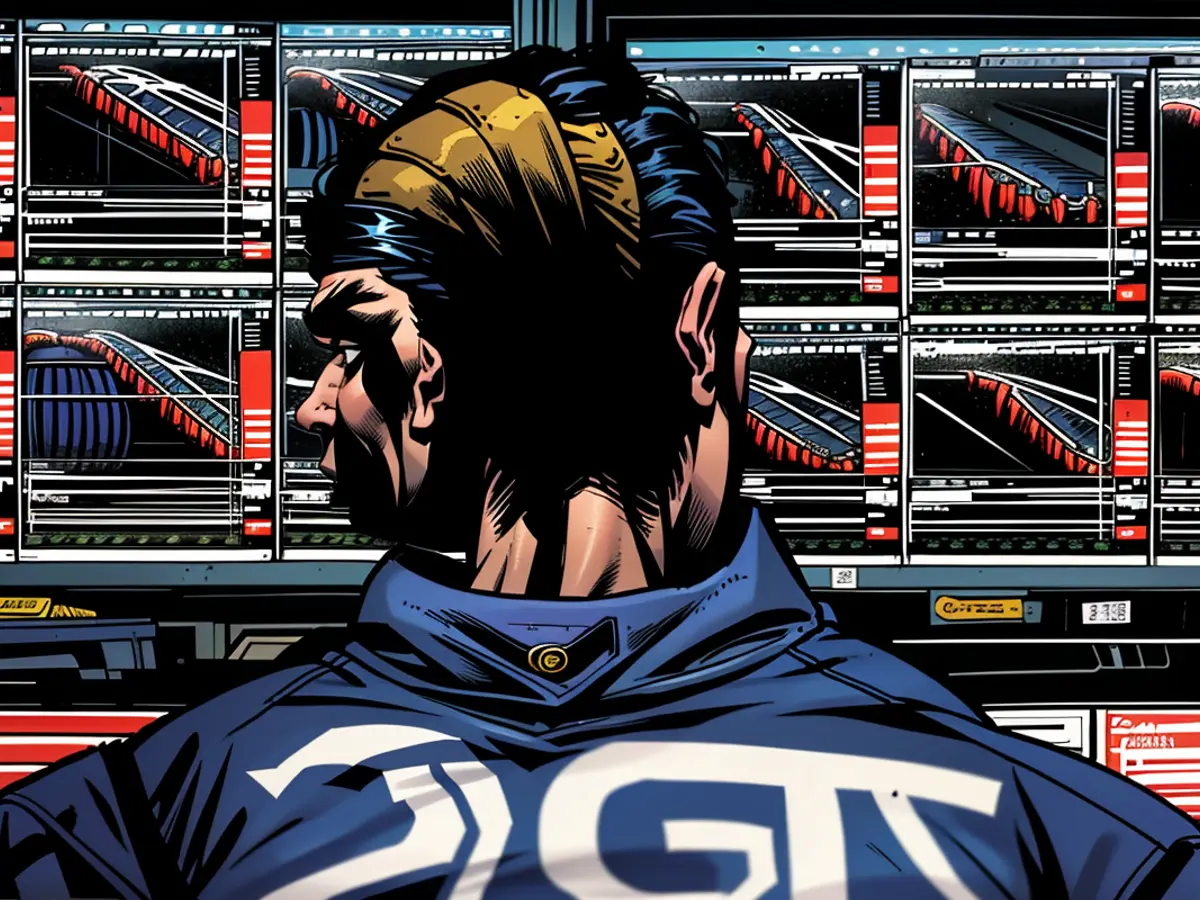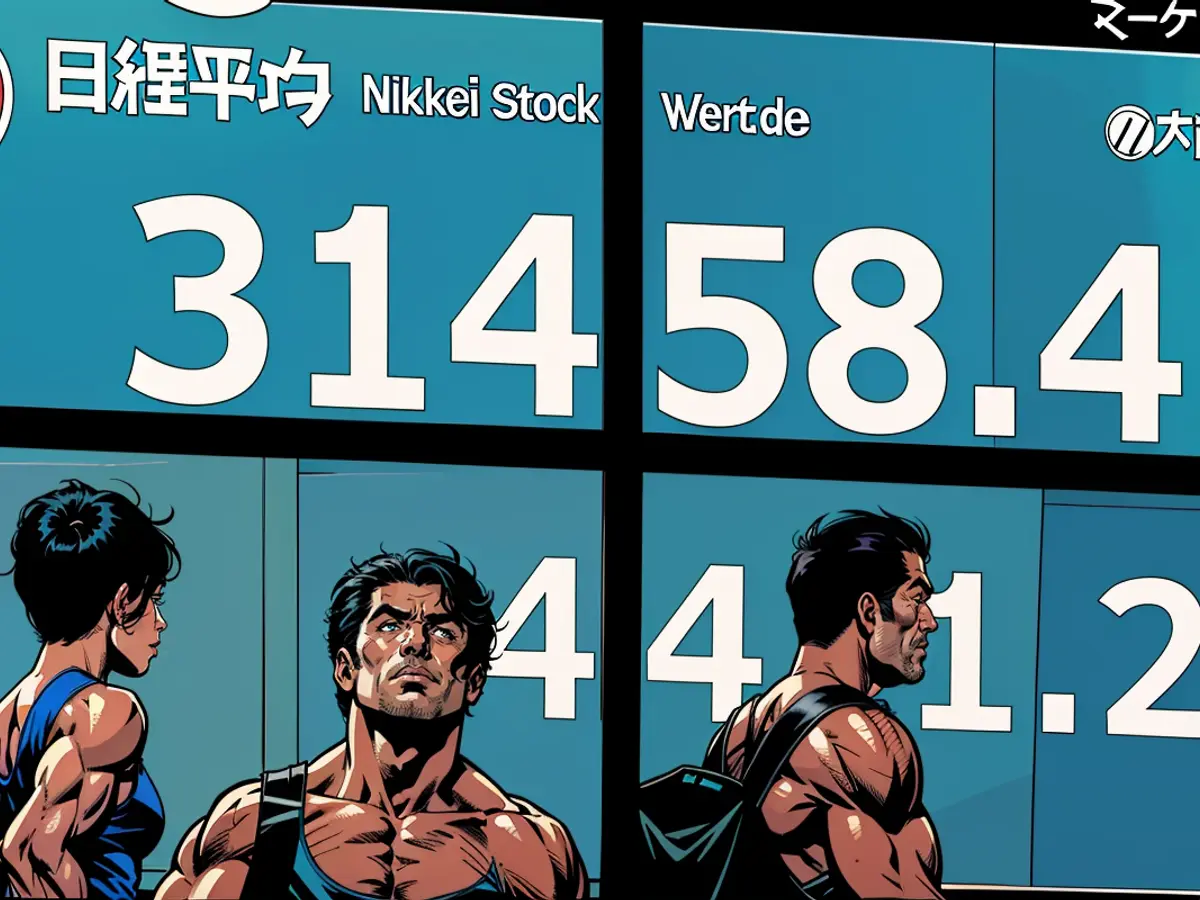These are the reasons for the stock market crash
Worldwide, stock markets are plummeting. Japan is particularly hard hit, with tech stocks also feeling the pinch. What's going on?
Markets around the world are taking a significant downturn. Japan's stock market has been especially hard hit, with the Nikkei index dropping around 12 percent, marking its worst day in 35 years. The Nikkei had already slipped on Friday. In Germany, prices are continuing to fall today, and US markets are facing a miserable start to the week, with tech stocks still under pressure.
There are several reasons for the crash. The most significant is the US Federal Reserve. Fear is growing on financial markets that the central bank kept interest rates too high for too long, and that the world's largest economy is heading for a recession. Despite high inflation, the Fed had not yet lowered the benchmark rate, which it had raised to a range of 5.0 to 5.25 percent. A surprisingly weak US jobs report soon after fueled fears that the Fed had overdone its economic brakes and would choke the economy.
Adding to this is the weakening economy in other regions, such as Europe. Against this backdrop, investors are selling stocks to secure some of the substantial gains they've made in recent months. To put this in perspective, the US tech index Nasdaq is still up nearly 10 percent for the year, and around 140 percent over the past five years. The DAX has gained over 10 percent this year.
Another reason for the crash is tech stocks. The so-called "Big Tech" companies have been driving most of the market gains recently. With the hype around artificial intelligence, stocks of Apple, Amazon, Alphabet, Meta, Microsoft, Tesla, and Nvidia have soared. Tesla's stock had already taken a hit, and now the entire tech bubble is deflating, pulling the entire market down.
Iran Threatens Israel
Worldwide, investors are becoming more cautious and selling stocks. This trend is exacerbated by tensions between Israel and Iran. Iran and its allies Hamas and Hezbollah have threatened retaliation for the deaths of key leaders. Fears are growing that the threatened attack on Israel could lead to a war between the hostile nations, with unpredictable consequences.
Japan's particularly heavy losses can be attributed to the convergence of all current stress factors. The economy is heavily dependent on exports and would suffer from a global economic slowdown. Tech stocks are among the biggest losers on the exchange. Additionally, Japan has been in vogue recently, with the Nikkei reaching a record high in February and surpassing its 1989 peak after a long drought. Now, investors want to secure their profits.
The strong yen is also putting pressure on Japan's export-heavy stock market, as Japanese products become more expensive abroad. The yen's rising value is driven by two main factors: in turbulent times, the Japanese currency serves as a "safe haven," and the central bank has raised interest rates.
The stronger Yen coupled with rising interest rates in Japan puts many investors in a tight spot - a popular, previously profitable deal is now becoming problematic. Known as a "carry trade", the mechanism involves investors borrowing cheaply in Japan and investing it abroad, particularly in the US. This deal works as long as the Yen is weak and the returns earned abroad are higher than the interest rates paid in Japan. However, the interest rate hikes by the Japanese central bank and the subsequent strengthening of the Yen are ruining the carry traders' plans.
This could explain why the gold price is slightly falling despite the market turmoil. Many investors seem to need liquidity to close out risky positions. In this context, crypto projects are also taking a hit. The Bitcoin price plummeted to as low as $51,600 and reached its lowest level since February. Since Friday evening, Bitcoin has lost about $10,000 in value.
What's next? For US stocks, futures markets suggest a weak open. Tech stocks are under particular pressure.
Read more about the current market developments here.
The reasons for the worldwide stock market crash include the US Federal Reserve keeping interest rates too high for an extended period, leading to fears of a recession, and the Fed's failure to lower the benchmark rate despite high inflation. Additionally, the threatened attack on Israel by Iran and its allies is causing investors to become more cautious and sell stocks.
Japan's heavy losses in the stock market can be attributed to the country's heavy dependence on exports, the strong Yen, which makes Japanese products more expensive abroad, the rising interest rates in Japan, disrupting the popular "carry trade," and the influence of global tensions over Israel and Iran.







